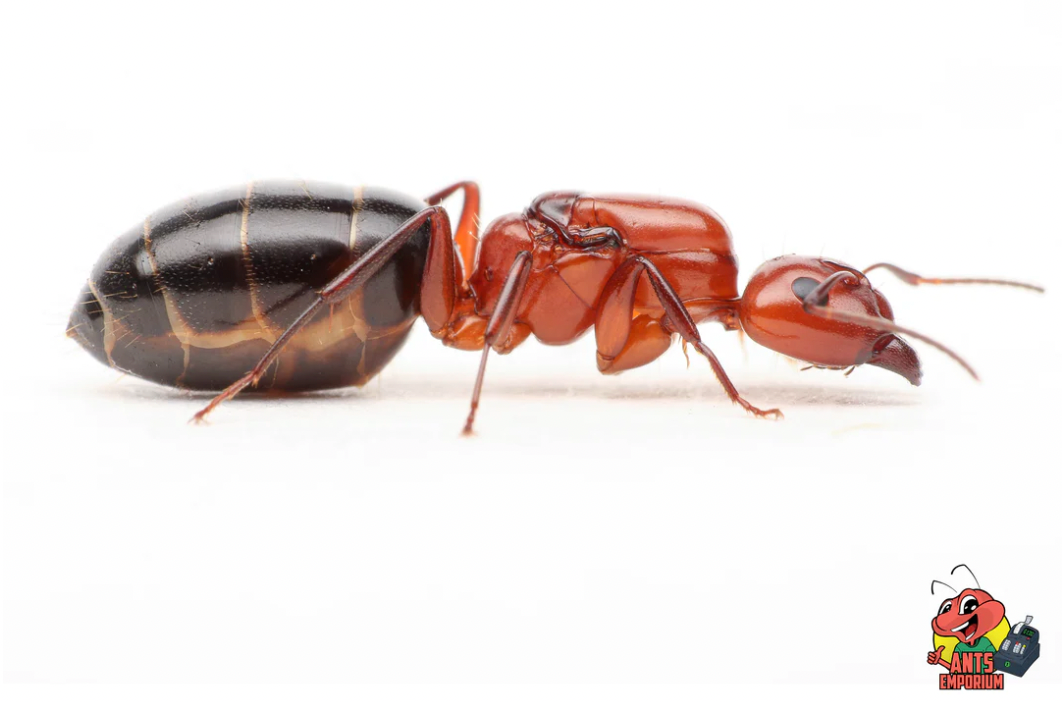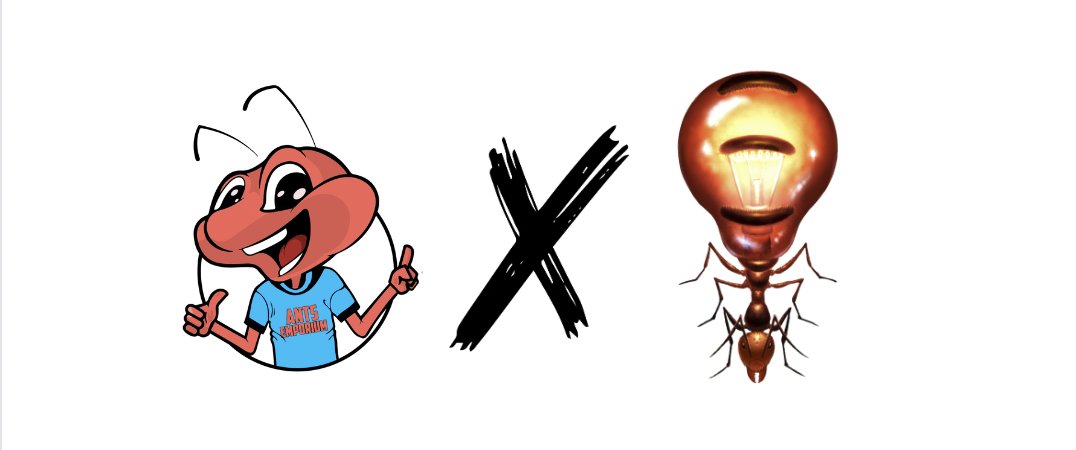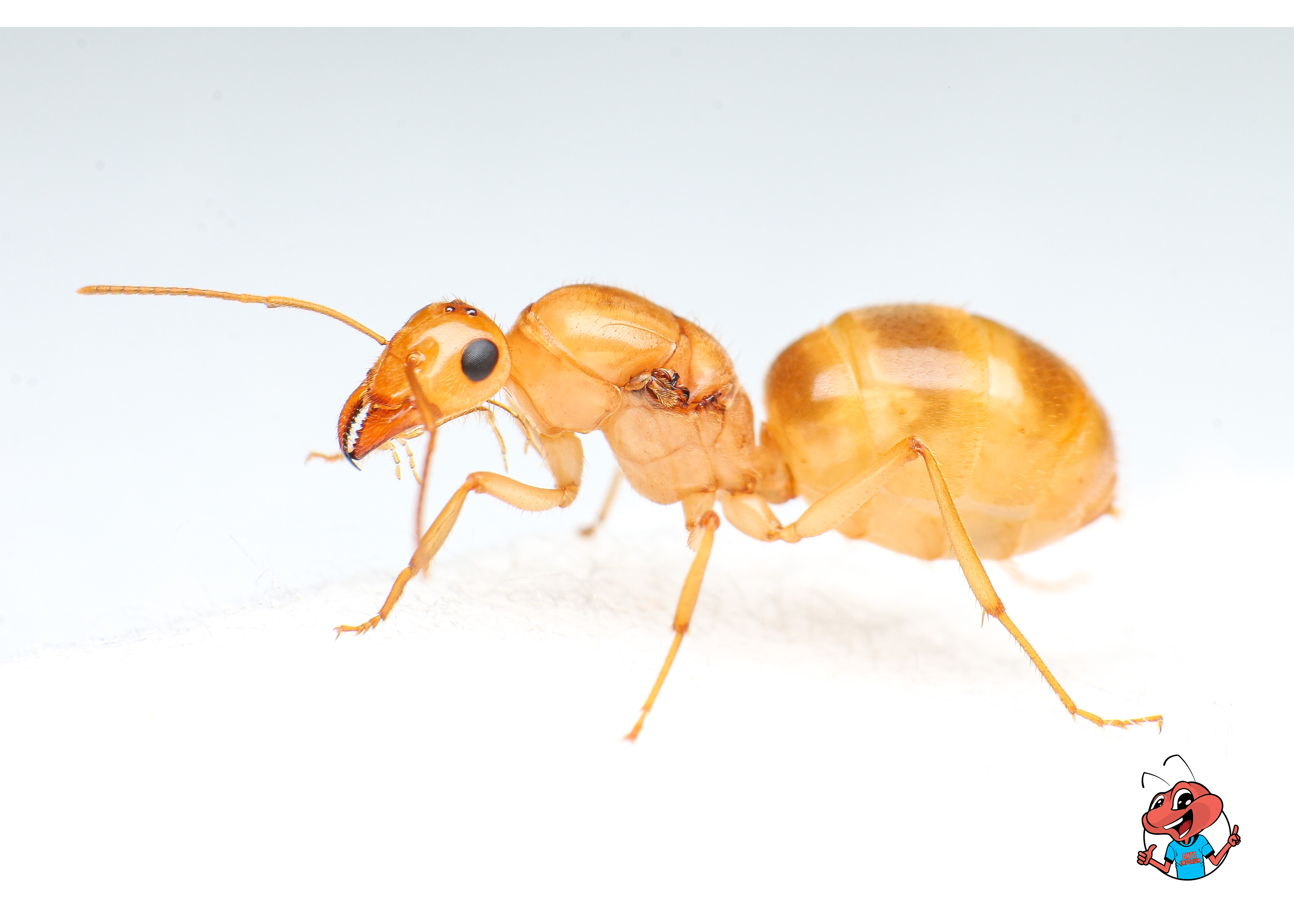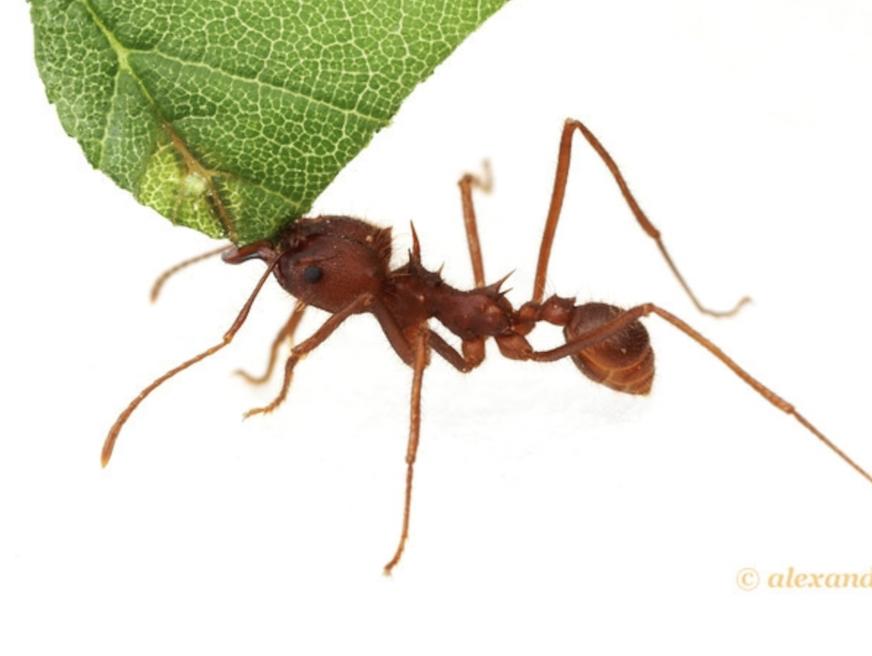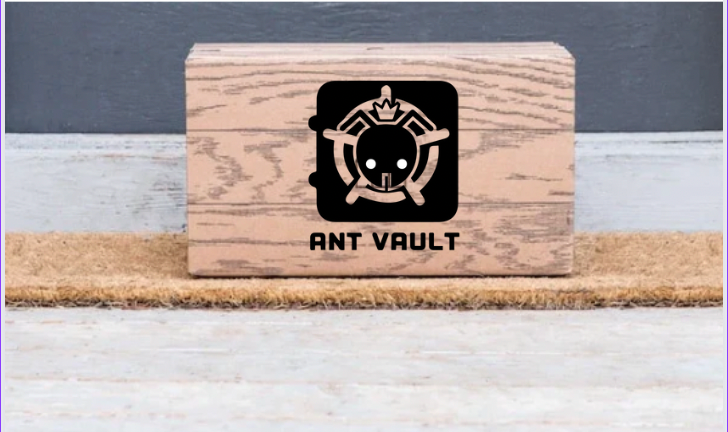Camponotus festinatus care guide: (Jumbo Sun Carpenter Ants)
Here's a detailed care guide on how a beginner can take care of Camponotus festinatus, also known as golden black carpenter ants:
Housing: Camponotus festinatus is a relatively large ant species and requires a spacious and well-ventilated nest. You can create a nest by using a test tube setup, an acrylic ant farm, or a formicarium provided by us. A test tube setup is the simplest and easiest way to start with. You can use a clean and sterile test tube, plug one end with cotton, and fill the other end with water and a few drops of sugar water. The ants will gradually move into the test tube and build a colony there.
Food and Water: Camponotus festinatus ants are omnivores, which means they feed on both plant and animal-based food. You can provide them with a variety of food such as insects, fruits, vegetables, and sugar water. For protein, you can offer them small insects such as fruit flies, mealworms, and crickets. You can also give them bits of cooked meat or scrambled eggs. For carbohydrate-rich food, you can provide them with honey, sugar water, fruits, and vegetables.
It is important to ensure that the ants always have access to clean water. You can use a hydration system or a test tube filled with water to provide water to the ants. Ensure that the water source is not contaminated, and it is changed regularly.
Temperature and Humidity: Camponotus festinatus requires a warm and humid environment to thrive. The optimal temperature range for their colony is between 22-28°C (72-82°F), and the humidity level should be around 50-60%. You can achieve this by placing the nest in a warm room or by using a heating cable or lamp. You can also mist the nest with water to increase humidity levels.
Maintenance: Regular maintenance is important for the health and well-being of the ants. You should clean the nest and the feeding area regularly to prevent the growth of mold or bacteria. Ensure that the food is not spoiled or contaminated, and remove any uneaten food promptly. You should also monitor the ant's behavior, and if you notice any abnormalities, such as lethargy or a lack of activity, you should seek professional advice.
Tips for ant-keepers:
- Always wash your hands thoroughly before and after handling the ants or their food.
- Never use pesticides or chemicals near the ants as they can be harmful to their health.
- Keep the ant's nest away from direct sunlight and drafts.
- Do not disturb the ants unnecessarily, as it can cause them stress and affect their behavior.
- Observe the ants regularly and learn about their behavior, as it can help you identify any potential health issues.
In conclusion, Camponotus festinatus is a fascinating ant species to keep as a pet, and with proper care, they can thrive and create a thriving colony.
